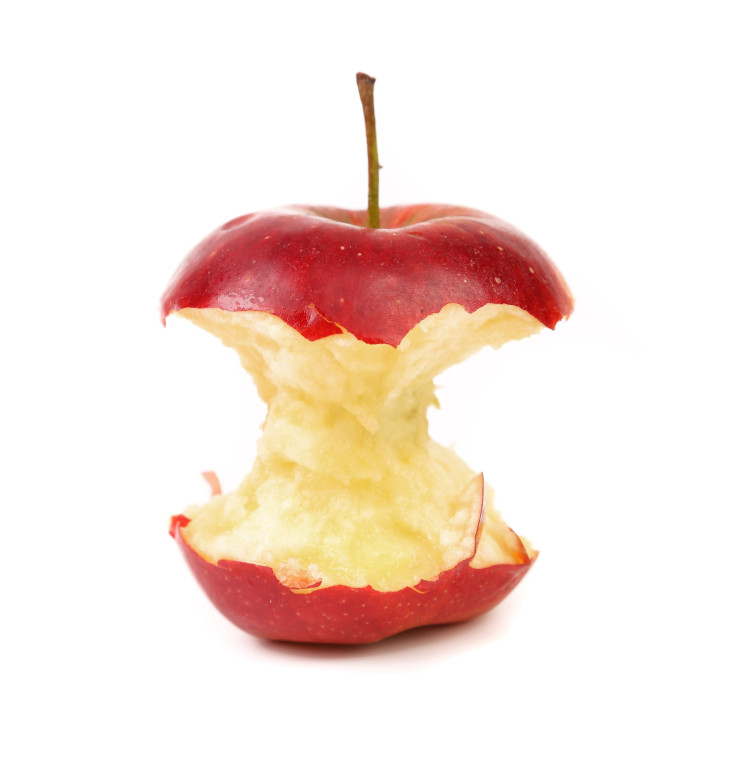There Is No Such Thing As An Apple Core: Eat The Entire Fruit Safely

An apple a day. As American as apple pie. The apple of my eye. How 'bout them apples? Apples have long been the center of many health tips and old adages. The crunching sound from the bite of a fresh apple is synonymous with eating healthy.
But why do we eat apples “to their core,” without consuming the entire thing? We’ve been trained to think there is an inedible aspect to the apple, but Dr. James Hamblin of The Atlantic points out the practice is flawed. “What do you think an apple core is? What’s the thing we throw away?” Hamblin writes. “It is a ghost.”
Indeed, in a video, Hamblin demonstrates that eating an entire apple, with nothing left behind, is possible and safe. He was inspired by a video by Foodbeast uploaded in May, titled, “How To Eat An Apple Like A Boss.” The video, which features a man eating an apple in its entirety, notes that the average person discards about 30 percent of each apple. It instructs us to eat apples vertically rather than horizontally — from the bottom to the top.
Hamblin, meanwhile, notes that our tendency to eat apples partially could actually amount to a massive waste of money. “If each of us eats an apple a day… and we are all wasting 30 percent of our apples at $1.30 per pound, that’s about $42 wasted per person per year — which is $13.2 billion annually, thrown in the trash or fed to pigs,” Hamblin writes. “With that kind of money, we could rebuild the Gulf Coast after a hurricane the size of Rita or buy an entirely new Mark Zuckerberg.”
Though the estimates may not be accurate or logically sound, changing our habits by eating apples whole serves as a reminder to be less wasteful of food. If we can take care to eat those extra bites of our apples, perhaps we’ll be more likely to curb wastefulness in other aspects of our lives.
An Apple A Day…
The saying, “An apple a day keeps the doctor away,” first originated back in 1866, but as a slightly different variation: “Eat an apple on going to bed, and you’ll keep the doctor from earning his bread.” Though the fruit does not guarantee perfect health, apples are packed with nutrition, including pectin, a form of fiber that lowers blood pressure, glucose levels, and may also lower levels of “bad” cholesterol, LDL. Apples contain vitamins C, A, E, and beta carotene, all of which may reduce the risk of heart disease, diabetes, and asthma. The fruit can also act as a teeth cleaner, killing bacteria in the mouth and naturally freshening breath. However, eating too many apple seeds could be dangerous, since apple seeds contain cyanide, which is essentially a poison. Eating a few apple seeds along with your apple won't harm you, though, as the levels of cyanide are extremely low in each seed.
In 2008, researchers at Cornell University found that bananas, oranges, and apples may protect neuron cells from oxidative stress-induced neurotoxicity, concluding that they might play a role in reducing Alzheimer’s and other neurodegenerative disorders. Another study found that out of 9,208 people, those who ate the most apples over the course of 28 years had a lower risk for stroke. So next time you pick up an apple for a snack, don't be afraid to chomp down the entire thing, invisible "core" and all.



























